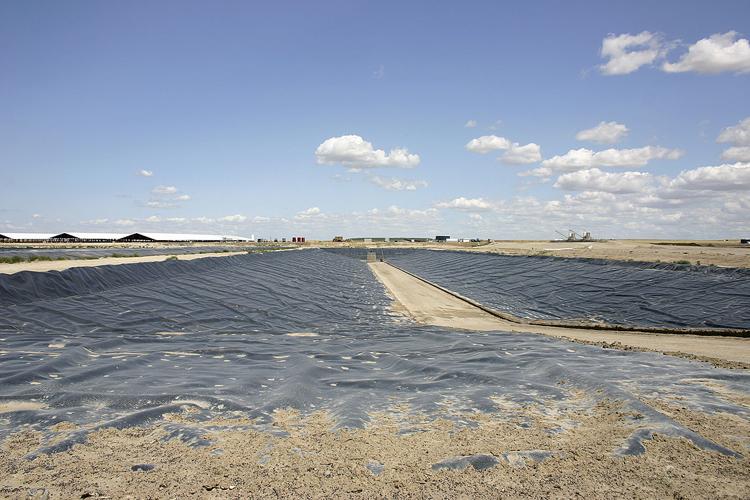
Inspectors from the Oregon Department of Agriculture have verified that solid and liquid waste was fully removed from Lost Valley Farm before the Oct. 31 deadline established under a legal agreement.
No cattle are currently allowed to occupy the facility in Boardman, Ore., but its plumbing and waste infrastructure is clean and functioning, said Wym Matthews, manager of ODA’s confined animal feeding operation program.
“It can sit there and accept stormwater without any discharge activity,” he said.
The large dairy was controversial in Oregon even before it began operating in 2017 due to concerns about the environmental effects of housing up to 30,000 cows at the facility.
Repeated problems with wastewater management prompted ODA to fine the dairy more than $10,000 and eventually to seek the revocation of its CAFO permit last year.
Meanwhile, Greg te Velde, the facility’s owner, filed for bankruptcy and lost control of his dairies after a judge found he had continued gambling and mishandling money.
The trustee appointed to operate Lost Valley Farm and te Velde’s two dairies in California, Randy Sugarman, reached a deal with ODA to clean up the facility while restructuring the overall company’s debt.
The budgeted cost of the cleanup was $2.3 million, which Sugarman said was a “sizable sum” but likely represents “a small fraction of the estate’s potential administrative liability to the State of Oregon,” according to a bankruptcy document.
Sugarman was required to continue overseeing the facility’s cleanup and operations even after the dairy was sold to Easterday Farms earlier this year for $66.7 million.
Ongoing monitoring of groundwater at the site has shown no signs that wastewater discharged from manure lagoons has negatively affected the aquifer, said Matthews.
Though ODA will submit a “letter of satisfaction” regarding the site’s cleanup, Sugarman will remain responsible for overseeing the facility until Easterday Farms obtains a new CAFO permit for the dairy, he said.
An application for such a permit is already under review by ODA and the Oregon Department of Environmental Quality, which will eventually release the plan for public comment, Matthews said. “We will propose a pretty broad outreach.”
Aside from Lost Valley Farm, the two dairies owned by te Velde in California are also slated to be sold.
A bankruptcy judge has approved the sale of nearly 2,000 acres and equipment owned by the G.J. te Velde Dairy in Tipton, Calif., for $28.75 million. The property is being sold to Maricopa Orchards, with the closing expected in January 2020.
The Pacific Rim Dairy, on 2,700 acres near Corcoran, Calif., is being upgraded with a manure digester to improve its environmental performance and to make it more appealing to potential buyers.
In a proposed bankruptcy plan, Sugarman said he’s listed the facility for sale for $56 million and wants to sell it “as expeditiously as possible.”
“Nonetheless, the California dairy sector is experiencing a dramatic drop and volatility in land values, livestock values and milk prices, so that it is extremely difficult to predict when and if the Trustee will receive a reasonable offer,” he said.

























